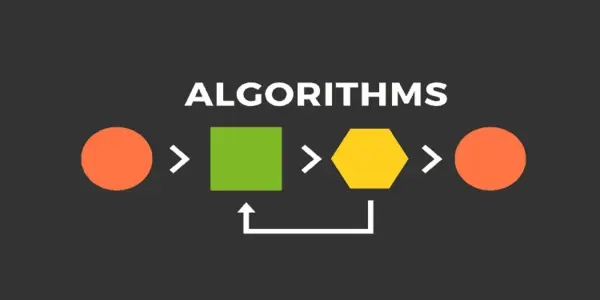Career in Algorithm

Algorithms are the invisible building blocks of the digital world, shaping how we interact with everything from social media feeds to weather forecasts. But have you ever considered a career in algorithms? If you’re fascinated by problem-solving, enjoy a good challenge, and possess a knack for logic, this might be the perfect path for you. In today’s blog, we’ll explore the exciting career in algorithms.
Table of Contents
What is an Algorithm Career?

Algorithms are essentially a set of instructions that break down a complex task into manageable steps. In the tech world, algorithm careers focus on designing, analyzing, and implementing these instructions to solve specific problems. From building the next big recommendation engine to optimizing traffic flow in a city, the applications are vast.
Also read: 10 ऐसी jobs future के लिए जिसका AI कुछ नही बिगाड़ सकती
Why Choose an Algorithm Career?

The rise of big data and artificial intelligence has fueled the demand for algorithm experts. Here’s what makes this field exciting:
- Be a problem-solver: Do you enjoy a good puzzle? Algorithm design is all about using logic and creativity to find efficient solutions.
- High Demand, High Reward: The Bureau of Labor Statistics predicts a 13% growth in computer and information technology occupations by 2031. This translates to ample job opportunities and competitive salaries.
- Shape the Future: Algorithms are at the heart of technological advancements. Be a part of the innovation shaping our world.
- Impactful Work: Your algorithms could shape everything from healthcare diagnoses to personalized learning experiences.
- Intellectual Challenge: Constantly refine your problem-solving skills and stay at the forefront of technological innovation.
Skills Required in Career in Algorithm

A career in algorithms can branch into many directions, but here’s a breakdown of the core skill sets you’ll need:
Technical Skills:
- Data Structures and Algorithms: This is the foundation. You’ll need a strong understanding of how different data structures (like linked lists and trees) work and how algorithms (sorting, searching) operate on that data.
- Programming Languages: Being proficient in at least one programming language is essential. Popular choices for algorithms include Python, C++, and Java.
- Mathematics: Solid math skills are crucial. You’ll likely use calculus, probability, and linear algebra to analyze algorithms and design efficient ones.
- Machine Learning (Optional): Many algorithm careers involve machine learning. Understanding machine learning concepts can give you an edge, especially in areas like recommendation systems or artificial intelligence.
Soft Skills:
- Problem-Solving: This is a must-have for any algorithm role. You’ll be constantly analyzing problems and devising creative solutions through algorithms.
- Analytical Thinking: You’ll need to break down complex problems into smaller, solvable parts and think critically about the efficiency of your algorithms.
- Communication: Being able to clearly explain your algorithms to both technical and non-technical audiences is important.
- Teamwork: Many algorithm-related jobs involve collaboration with other engineers, data scientists, and software developers.
Also read: The Impact of Artificial Intelligence (AI) on the future work
How to start your career in Algorithms?

A strong foundation in computer science is key. A bachelor’s degree is often preferred, with coursework in algorithms, data structures, and programming languages like Python and C++. Here are some important tips:
- Foundational Degree: A bachelor’s degree in computer science, mathematics, or a related field is a typical starting point. This equips you with the core concepts of problem-solving and computational thinking.
- Specific Areas: Depending on your interests, consider specializing in areas like machine learning, data structures, or algorithms analysis during your studies.
- Programming Languages: Proficiency in programming languages like Python, C++, or Java is crucial for algorithm design and implementation.
- Internships: Look for internships at tech companies or research institutions. This provides valuable hands-on experience working with algorithms in real-world settings.
- Personal Projects: Develop your own algorithmic solutions to problems you find interesting. This showcases your initiative and problem-solving skills to potential employers.
- Certifications: While not mandatory, certifications in programming languages or specific algorithm design techniques can enhance your resume.
- Stay Updated: The field of algorithms is constantly evolving. Keep yourself updated on the latest advancements and research through online courses, conferences, or workshops.
- Networking: Establish professional networks by attending industry events, participating in online communities, and networking with individuals on LinkedIn.
Some best careers in Algorithm

The good news is there’s an algorithm niche for almost everyone. Here are some popular career paths:
- Data Scientist: Data scientists are the rockstars of the information age, using algorithms to analyze and interpret massive amounts of data. They uncover hidden patterns, trends, and insights, which businesses can then use to make better decisions.
Average salary:
India: ₹10 Lakh per Annum
USA: $117k per year
- Machine Learning Engineer: Machine learning engineers are the architects of artificial intelligence. They design and build algorithms that allow computers to learn from data without being explicitly programmed. These algorithms are used in everything from self-driving cars to facial recognition software.
Average salary:
India: ₹8 Lakh per Annum
USA: $150k per year
- Software Engineer: Software engineers are the builders of the digital world. They use algorithms to design, develop, and maintain the software applications and systems that we rely on every day.
Average salary:
India: ₹6 Lakh per Annum
USA: $139k per year
- Algorithm Engineer: Algorithm engineers are a specialized type of software engineer who focuses on the design and development of algorithms. They work on a wide range of problems, from optimizing traffic flow in cities to improving the performance of search engines.
Average salary:
India: ₹10 Lakh per Annum
USA: $100k per year
- Operations Research Analyst: Operations research analysts use algorithms to solve complex business problems. They develop models and simulations to help businesses make better decisions about everything from staffing levels to inventory management.
Average salary:
India: ₹5 Lakh per Annum
USA: $130k per year
Future of career in Algorithm

The field of algorithms is a treasure trove of potential, constantly bubbling with new possibilities. As technology surges forward, we can expect even more groundbreaking applications to emerge. These advancements will likely touch many aspects of our lives, from the robots that interact with us to the sophisticated systems that safeguard our data and our planet.
Conclusion
The world of algorithms is dynamic and ever-evolving, offering a challenging and rewarding career path for those with a passion for problem-solving and innovation. By honing your analytical skills, building a strong programming foundation, and staying curious about the latest advancements, you can position yourself at the forefront of shaping the future with algorithms.
Also check:
FAQs
1. What jobs can I get with an algorithms background?
There are many! Algorithm skills are valuable in various fields, including software engineering, machine learning, artificial intelligence, data science, and finance.
2. What kind of education do I need?
A bachelor’s degree in computer science, mathematics, or a related field is a strong foundation. However, some roles may be attainable through bootcamps or self-learning with a focus on programming languages and algorithm design.
3. What programming languages are important for algorithms?
Python, Java, and C++ are some of the most commonly used languages for algorithm development.
4. Is there a lot of math involved?
Yes, a strong understanding of linear algebra, calculus, and probability will be beneficial for many algorithm-focused careers.
5. Where can I learn more about algorithms?
Many online resources offer courses, tutorials, and challenges to sharpen your algorithmic thinking. There are also active online communities where you can connect with other aspiring algorithm enthusiasts.




